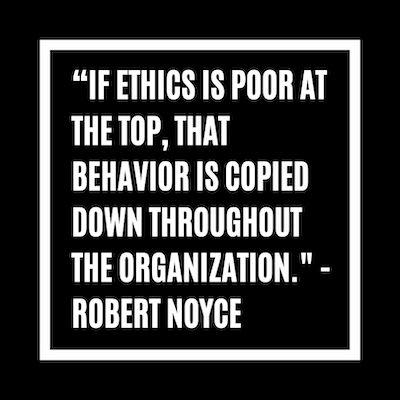Guaranteed Success: Business Ethics for Digital Agencies in 2024
February 2, 2024
Effective communication and training, the creation of ethical policies and guidelines, and encouraging ethical behavior among employees are key aspects of building a culture of ethics in digital agencies.
Effective communication and training, the creation of ethical policies and guidelines, and encouraging ethical behavior among employees are key aspects of building a culture of ethics in digital agencies.
The digital landscape has transformed how businesses operate, communicate, and interact with customers. With the advent of technologies like artificial intelligence, machine learning, and big data analytics, the digital sphere has become an integral part of our daily lives. However, in this rapidly evolving digital world, one area that often gets overlooked is business ethics.
Business ethics refers to the moral principles that guide a company’s conduct, including its digital activities. It involves the norms, values, ethical practices, and unethical practices that govern the business world.
In today’s digital world, where consumers are savvy and scrutinize the companies behind the products, business ethics are the backbone of digital marketing strategies. It helps build trust, enhances brand reputation, and ensures long-term success.
US-based digital agencies, in particular, are tasked with navigating the complex ethical landscape of the digital world. They are crucial in shaping the digital narrative and influencing consumer behavior. Therefore, upholding business ethics is a moral obligation and a strategic imperative for digital agencies.
Core Principles of Business Ethics in Digital Agencies
Upholding Integrity in Digital Operations
Integrity is a cornerstone of business ethics. In the digital realm, it manifests itself in authenticity and honesty.
- Authenticity in Online Presence: Digital agencies must present themselves authentically online. Any form of deception or misrepresentation can harm the agency’s reputation and potentially lead to legal consequences. Authenticity also builds trust with clients and establishes a strong brand identity.
- Honest Communication with Clients: Honesty in communication is paramount. Transparent and clear communication with clients about the terms and conditions, costs, and timelines can prevent misunderstandings and conflicts down the line.
Ensuring Transparency in Digital Practices
Transparency is another key principle of business ethics. In the digital world, it involves clear disclosure of terms and conditions and openness about how data is handled and processed.
- Clear Disclosure of Terms and Conditions: Digital agencies must clearly state their terms and conditions, including details about the scope of work, payment terms, and any other relevant information. Clear disclosure prevents confusion and ensures both parties understand what they’re getting into.
- Transparency in Data Handling and Processing: Digital agencies handle vast amounts of data, including client data and personal information. Transparency on how this data is collected, stored, and used is crucial. Agencies must inform clients about the purpose of data collection, how the data is used, and who has access to it.
Accountability in Digital Campaigns
Accountability involves taking responsibility for one’s actions and decisions. In the context of digital agencies, it translates into responsibilities towards clients and the wider stakeholder community.
- Responsibility for Content Accuracy: Digital agencies must ensure the accuracy of the content they produce and distribute. Misinformation or misleading content can damage reputations and lead to legal consequences.
- Ethical Considerations in Algorithmic Decision-Making: Agencies must ensure their algorithms do not discriminate against certain groups or individuals.
Fostering Fairness in Digital Interactions
Fairness involves treating everyone equally and fairly. In the digital world, it extends to fair competition and equal treatment of clients and employees.
- Fair Competition in the Digital Space: Digital agencies must compete fairly and honestly. This means providing value to clients without resorting to unfair tactics or deceptive practices.
- Equal Treatment of Clients and Employees: Every client and employee deserves equal treatment. Discrimination based on race, gender, age, or any other characteristic is unethical and illegal.
Ethical Decision-Making in Digital Agencies
Ethical decision-making involves applying ethical principles to make correct and beneficial choices. In the digital world, it involves making decisions that are ethically sound and legally compliant.
Imagine a scenario where a digital agency is developing a marketing campaign for a new product. The campaign involves targeted advertising based on user data. Is it ethical to use user data to target advertising?
While it might seem efficient, this approach raises serious ethical concerns. It could violate user privacy and lead to discrimination. Therefore, the agency must carefully consider these ethical implications before proceeding with the campaign.
Frameworks for Ethical Decision-Making
There are several frameworks that can guide ethical decision-making in digital agencies. These include the utilitarian approach, the deontological approach, and virtue ethics. Each framework provides a different perspective on what constitutes an ethical decision.
- Utilitarian Approach: This approach focuses on the overall outcome or utility. A decision is considered ethical if it leads to the greatest good for the greatest number of people.
- Deontological Approach: This approach is based on duty or rules. A decision is considered ethical if it follows predefined ethical rules or duties.
- Virtue Ethics: This approach focuses on the character or virtues of the person making the decision. A decision is considered ethical if it reflects virtues such as honesty, courage, and compassion.
Building a Culture of Ethics in Digital Agencies
Building a culture of ethics involves instilling ethical values and behaviors throughout the organization. It starts with leadership and extends to all employees.
Leadership’s Role in Promoting Ethics
Leadership plays a crucial role in promoting ethics in digital agencies.

- Setting a Positive Example: Leaders must lead by example. Their actions and decisions should reflect the ethical values they want to instill in the organization.
- Communication and Training: Leaders must communicate the importance of ethics and provide training
Creating Ethical Policies and Guidelines
Creating ethical policies and guidelines is a crucial step in building a culture of ethics. These policies should clearly define what is expected from employees and outline the consequences of non-compliance. They should be regularly reviewed and updated to reflect changes in the industry, technology, and societal attitudes towards ethics.
Encouraging Ethical Behavior Among Employees.
Encouraging ethical behavior among employees is a continuous effort that begins with setting the right example and ends with consistent reinforcement. Leaders should recognize and reward positive actions while taking disciplinary action when necessary. This fosters a culture of integrity, responsibility, trust, and respect, ensuring that the workplace remains ethical and supportive of all employees.
Conclusion
In conclusion, upholding business ethics in digital agencies is a complex yet crucial. It involves adhering to core integrity, transparency, accountability, and fairness principles. It also requires effective communication and training, the creation of ethical policies and guidelines, and encouraging ethical behavior among employees.
However, the journey of upholding business ethics in digital agencies is ongoing. As the digital landscape continues to evolve, so will the ethical challenges that digital agencies face. Therefore, remaining flexible, adaptable, and committed to upholding the highest ethical standards is important.

Are you looking for a digital agency that prioritizes business ethics? Look no further! At JustNovate we offer a range of services, including Branding, Product Design, Custom Website Design, and SEO Website Auditing, all while adhering strictly to ethical standards. Contact us today to learn more about how we can help you achieve your digital goals while ensuring that your business practices are ethical and responsible.
Suggested Posts

Explore the critical role of a professional website in logistics business. Discover the benefits, key features, and steps to build a unique online presence for your logistics company.

In 2024, the real estate industry is experiencing a profound digital transformation, reshaping how businesses engage with clients and operate in the market. As the shift towards online transactions accelerates, having a robust digital presence has become more critical than ever.

A website is not just a digital brochure; it's a dynamic platform that can evolve with your Business.
